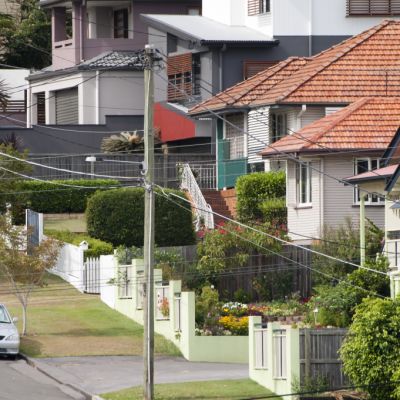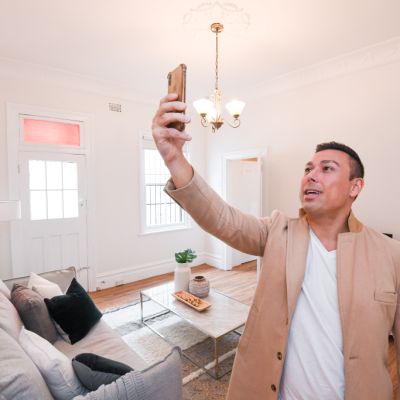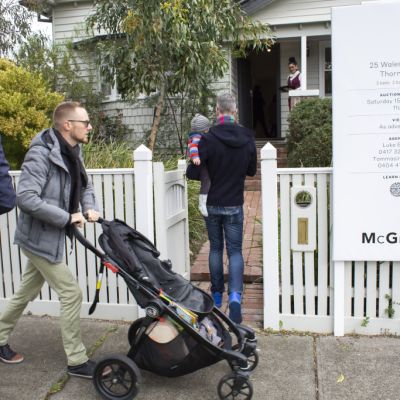How to sell your home during the coronavirus pandemic

Changes to everyday life due the coronavirus outbreak have already affected the property market, but the announcement on Tuesday that auctions and open homes will be banned was the biggest shake-up to date.
As of midnight Wednesday, public open homes and auctions, both on site and in auction rooms, can no longer be held as authorities ramp up restrictions to contain the spread of coronavirus.
Not only will these changes cause home-owners contemplating a sale to rethink their strategy, it will also affect vendors who already have their homes on the market.
While there is likely to be a period of reduced activity in the property market due to the COVID-19 pandemic, not all vendors have the luxury of simply waiting out the crisis.
“There are compelling reasons to sell,” said Tower Property Advisory director Robert Allanadale. “I know vendors out there who have bought a property and they have to sell. There are people moving into aged care that need to sell their property to pay the rates.”
Home-owners with a financial need to sell will probably continue their campaign, but it may take longer to find a buyer. For owners who need a quick sale, there’s no guarantee of prices seen in the past few months.
A successful sale in the current climate requires a level head, innovative solutions and realigned expectations.
How will the latest restrictions affect vendors?
Restrictions on auctions will have the biggest effect in areas where the auction format is preferred, such as the inner suburbs of Sydney and Melbourne.
The ban is also expected to be a catalyst for growth in online auctions and will lead to an increase in expression-of-interest campaigns, which are usually reserved for expensive or unique properties.
“People who are in the middle of an auction campaign, what the agents are doing is changing the campaign to expressions of interest,” Mr Allanadale said. “Let’s say it’s on this Saturday coming up, they’ll say expressions of interest are closing this Monday.”
If agents receive enough offers on a property, they may convert the sale to an online auction, he said.
In areas where private treaty is preferred, the largest effect will be restrictions on open homes, which are now prohibited due restrictions on crowds in enclosed spaces.
The good news for sellers is that private inspections are still allowed to go ahead, for now, and there are no restrictions on transacting property.
“If you’re interested in a property, agents will have private inspections,” Mr Allanadale said. He said agents were already following social distancing protocols, including providing hand sanitiser, ensuring buyers who felt unwell did not attend, and asking all who inspect to avoid touching anything in the home.
Vendors already in the market should maintain clear lines of communication with their agent around how their home is being marketed and sold, while those planning a sale should discuss options and strategies with local agents in the area.
What should home owners do if they need to sell now?
Those who have already bought a home and need to use the proceeds of their own sale to pay for it will need to continue with their campaign, according to Property Planning Australia managing director David Johnston.
“You’ve probably got to sell unless you have access to bridging finance,” he said. “You’re probably wanting to move quickly because the number of buyers is obviously going to diminish.”
The effects of the pandemic won’t just be limited to the demand side. “The number of buyers are going to reduce but so are the number of sellers,” Mr Johnston said. Coupled with the illiquidity of property as an asset, this could help contain any decline in values.
While vendors need to understand there will be fewer buyers in the market, due to both the practicalities of transacting, as well as the economic effects of the pandemic, there are some buyers who will look to take advantage of an expected downturn.
Mr Johnston said many property advisories were already seeing people wanting to take advantage of any available purchasing opportunities.
“There’s still not just home-buyers who have to buy, there are home-buyers who want to buy. There are plenty of people whose jobs are not impacted and there are plenty of people who are cashed up, too.
“There are still investors who want to buy an investment property, although admittedly there’s probably less of those.”
Owners who need to upgrade may even find their next home proves to be better value.
“There’s some probability that values will slip, so the sooner you sell if you’re planning to buy as well, would probably make sense,” Mr Johnston said.
Home-owners contemplating selling need to carefully consider the reasons behind their sale before making any major decisions.
“Every situation comes down to the why,” he said. “What’s their motivation and what do they need or want to achieve from the sale?”
While more changes to the property market are anticipated, buying, and selling, was expected to continue, Mr Allanadale said.
“If we still manage to market properties one way or another, then we can still have sales.”
States
Capital Cities
Capital Cities - Rentals
Popular Areas
Allhomes
More










